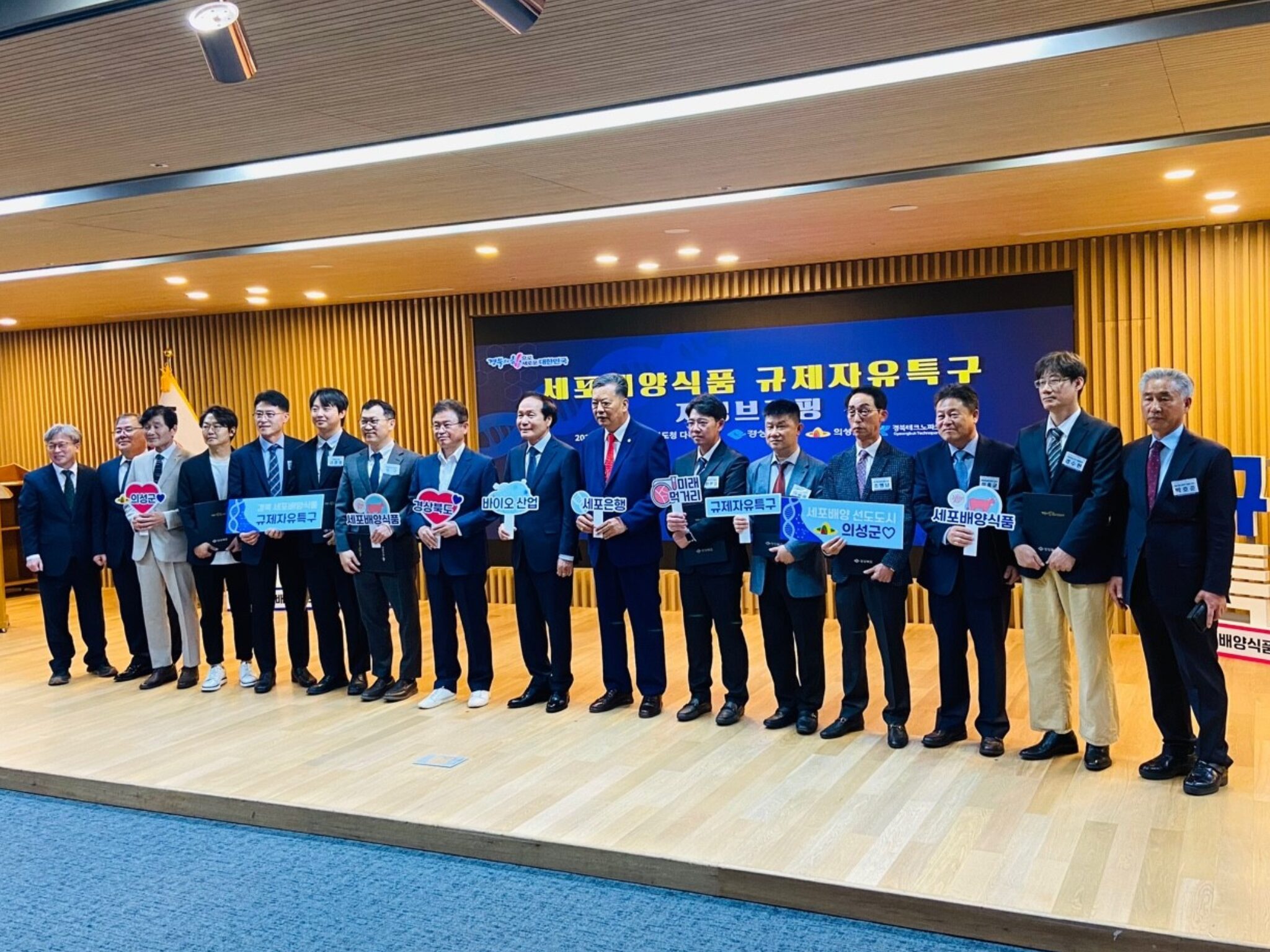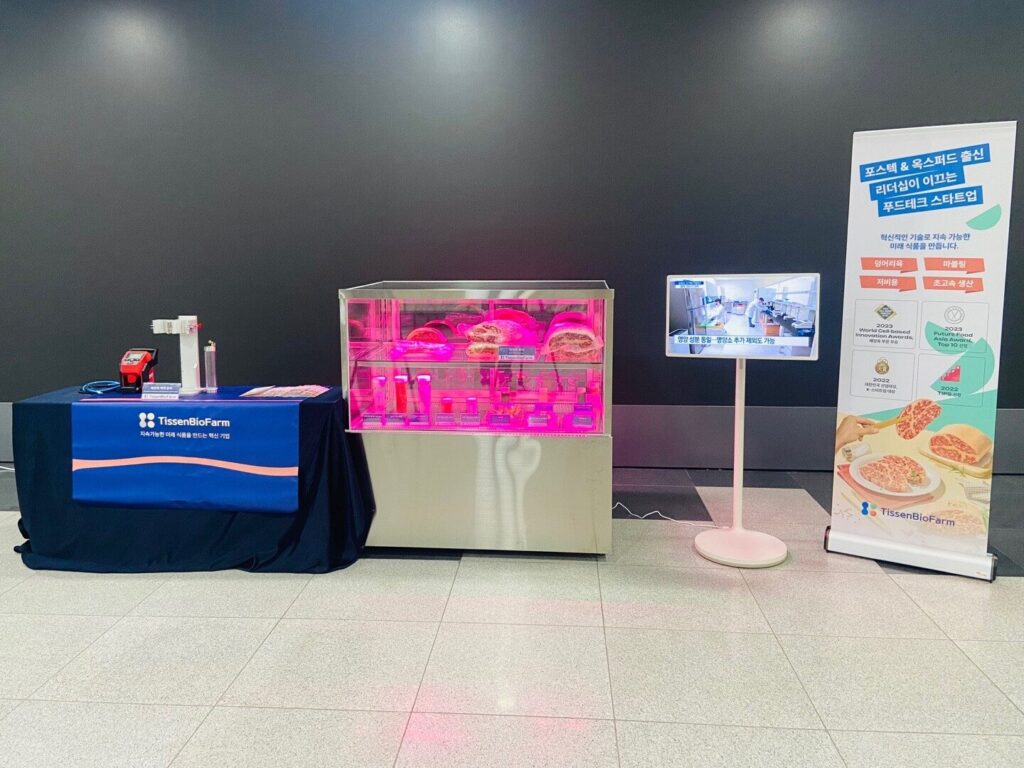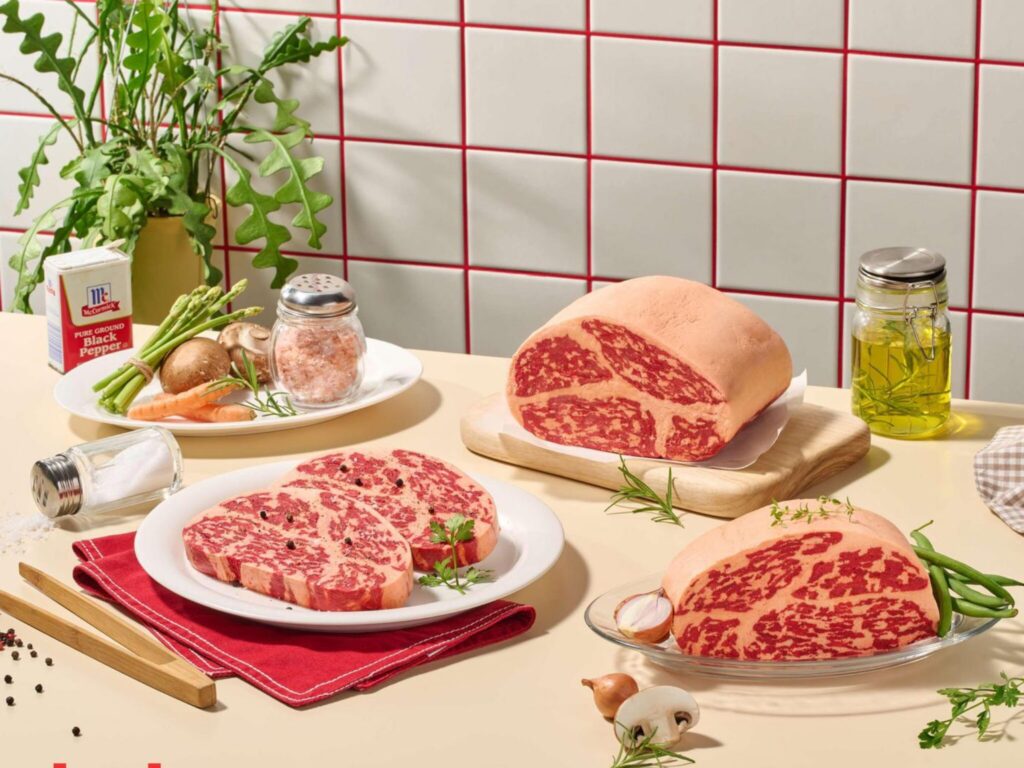
The South Korean government has created a special zone designed for the development of cultivated foods, which will exempt companies from certain regulatory hurdles to help them commercialise their products.
South Korea has taken a massive stride towards the commercialisation of cultivated meat, designating the eastern province of Gyeongsangbuk-do a regulation-exempt zone for companies innovating in this space.
Formally titled the Gyeongbuk Cell-Cultivated Foods Regulatory-Free Special Zone (RFSZ), the area will harbour 10 cultivated meat companies and has received a special exemption for using biopsies and same-day slaughtered tissues in support of mass production of high-quality cultivated meat.
One of these startups will be TissenBioFarm, which last year debuted a 10kg piece of cultivated meat to commemorate the opening of the nation’s Cellular Agriculture Support Center. Its CEO Wonil Han said the RSFZ will be a “major turning point” not just for his company, but the local economy and the cultivated food industry too.
South Korea helping startups commercialise cultivated meat

RSFZs were introduced in 2019 by the Ministry of SMEs and Startups to facilitate the creation of a flexible business landscape outside Seoul, allowing companies to carry out tests for innovative technologies and conduct business without regulations. Startups were also backed by funding for R&D and tax breaks.
Initially, the government identified seven such zones, focusing on areas including digital healthcare, e-mobility, battery recycling and smart wellness. But this is the first RSFZ to address food, and choosing to focus on cultivated meat highlights the government’s growing acceptance of the industry, which it has previously selected in its top 10 lists of food and drug regulatory innovations and core food tech areas.
The cultivated meat FRSZ was inaugurated by the governors of Gyeongsangbuk-do and the Uiseong-gun county, who believe the supply of fresh cells is key to commercialising high-quality cultivated meat The exemption is further expected to help startups improve the flavour and texture of cultivated meat and enhance cell growth.
The zone will be operational for the next five years, starting next month and running until December 2028, and has been allocated ₩19.9B ($14.4M). This is just one of Gyeongsangbuk-do and Uiseong-gun’s efforts to build a more welcoming environment for cultivated meat. They recently completed work on a local industry support centre in the Bio Valley General Industrial Complex, and are constructing a Good Manufacturing Practice facility for startups in this space, which is set to be completed this year.
Apart from TissenBioFarm, it will be host to LARTBIO, DaNAgreen, Seawith, Micro Digital, Mynu, LMK, SSBIO PHARM, K-Bio CMO Center and Gyeongbuk TP. These startups will work to demonstrate the commercialisation of cultivated foods in the Bio Valley complex in Uiseong-gun. TissenBioFarm, for example, will develop and demonstrate marketable cultivated foods using its 3D biofabrication method for mass production and food additives for the taste and texture of the meat.
“With this designation, we will strengthen our competitiveness in the global market and grow with local partners. We look forward to seeing Gyeongsangbuk-do becoming a global hub in cell-cultivated food technology,” said Han.
Taste and price parity key amid regulatory progress

The move comes just months after the country’s Ministry of Food and Drug Safety established a framework for the regulatory approval of cultivated meat, inviting producers to submit their products for approval. It came a year after 28 industry stakeholders signed an MoU to advance the country’s cultivated meat industry, and the North Gyeongsang province saw the opening of the aforementioned cellular agriculture support centre.
Dossiers submitted by companies need to include safety verification data, including the name of the raw material, the origin of the cell, the manufacturing process, and the usage history. If the cells are derived from livestock, applicants must provide information about the donor, such as country of origin, gender, age, and slaughter inspection certificate. The entire process is set to take up to 270 working days, meaning even if companies apply soon, it’s unlikely that any clearance will be given this year.
The approval process will cost companies a fairly steep ₩45M ($34,000), in contrast with the no-fee assessments offered by countries like Singapore and Israel. Plenty of nations do charge a fee, though, which is either mandatory or voluntary (to speed up the process) – this includes Australia and New Zealand, the US, the UK, and the EU.
But despite the revision of the regulatory framework in January – which concluded a process that began in 2022 – barriers remain for full-scale commercialisation of cultivated meat in South Korea. This includes securing economic efficiency by establishing mass production systems, and achieving flavour and price parity with conventional meat.
In October, a 1,110-person survey suggested that 90% of South Koreans were willing to try cultivated meat at least once, with 19% saying they would prefer it over plant proteins – but price and taste/texture are major purchase drivers, important 65% and 62% of respondents, respectively. While two-thirds of citizens spend up to ₩50,000 ($23-38) per week on meat products for the whole household, only 12% would pay ₩1,000-3,000 (75 cents to $2) more per 100g of cultivated meat.
However, 57% and 25% said they’d eat cultivated pork and beef, respectively, if they’re cheaper than their farmed counterparts. It showed that scaling up production to reach price parity is one of the sector’s tallest obstacles in the country, but by modernising its regulations and designating a regulation-free zone to foster innovation, it looks like South Korea is turning over a new leaf with cultivated meat.
The post South Korea Inaugurates Regulation-Free Special Zone for Cultivated Meat Development appeared first on Green Queen.
This post was originally published on Green Queen.